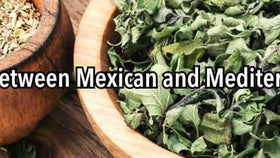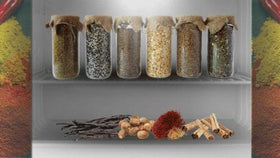Does Saffron Change the Taste of Food?
Saffron has been a coveted ingredient in culinary traditions around the world for centuries. Known for its vibrant color and unique flavor profile, saffron is a spice derived from the Crocus sativus flower. Saffron is known by many as the most expensive spice in the world, which is true if you are only considering weight. However, a little saffron goes a long way in imparting flavor and a gorgeous golden hue to dishes. But what flavor does saffron contribute to food? Is it really worth the price? In this article, we'll delve into the impact saffron has on the flavor of dishes and whether it lives up to its reputation as a luxury spice.
How Does Saffron Impact Food
What Flavor Does Saffron Lend to Food
Saffron threads come from the crocus flower. Specifically, they are the styles and stigmas of the saffron crocus. So, it should come to no surprise that they infuse floral notes into dishes and with subtle honey-like sweetness. Additionally, saffron produces a unique astringent component that is owed to a chemical component called picrocrocin. Meanwhile, safranal, the primary essential oil in this popular spice, contributes aromatic properties that provide the earthy and slightly herbaceous experience. It’s these components that come together to enhance the overall flavor of the dishes they are added to.
Using Saffron to Enhance Savory and Sweet Dishes
When most people think of saffron, they envision savory dishes like paella, curries, or tagines. The saffron not only infuses richness, depth, and complexity, it complements a wide variety of other flavors in such dishes, without overpowering them.
On the sweet side, saffron is often used in desserts like saffron-infused ice creams or baked goods like saffron cookies. The subtle sweetness seems as though it would be an obvious ingredient in sweet goods and the earthiness balances the sweet, but it is the floral element that really shines in sugary delights.
The Visual Impact of Saffron on Dishes
Beyond its taste, saffron significantly impacts the visual appeal of dishes. The characteristic golden hue it injects is not only visually striking but can also influence our perception of flavor. Saffron's vibrant appearance can incite a perception of elegance, while the golden hue also brings forth feelings of comfort.










Slofoodgroup
Author